6-Methyl-1,3,5-triazine-2,4-diamine
Synonym(s):2,4-Diamino-6-methyl-1,3,5-triazine;Acetoguanamine
- CAS NO.:542-02-9
- Empirical Formula: C4H7N5
- Molecular Weight: 125.13
- MDL number: MFCD00023192
- EINECS: 208-796-3
- SAFETY DATA SHEET (SDS)
- Update Date: 2024-12-18 14:15:30
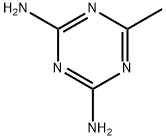
What is 6-Methyl-1,3,5-triazine-2,4-diamine?
Chemical properties
white solid
The Uses of 6-Methyl-1,3,5-triazine-2,4-diamine
6-Methyl-1,3,5-triazine-2,4-diamine may be used in the synthesis of s-Bodipy-triazine (BODIPY = 4,4-difluoro-4-borata-3a-azonia-4a-aza-s-indacene). It is a symmetric fluorescent sensor for Cu2+.
Definition
ChEBI: A diamino-1,3,5-triazine that is 1,3,5-triazine-2,4-diamine carrying an additional methyl substituent at position 6.
General Description
6-Methyl-1,3,5-triazine-2,4-diamine butane-1,4-diol monosolvate crystallizes with 6-methyl-1,3,5-triazine-2,4-diamine (DMT) and a molecule of butane-1,4-diol in the asymmetric unit. The DMT molecules form ribbons having centrosymmetric dimer motifs between DMT molecules along the c-axis. DMT and thymine forms a new metastable bicomponent hydrogel, which cage a number of organic solvents.
Flammability and Explosibility
Non flammable
Properties of 6-Methyl-1,3,5-triazine-2,4-diamine
| Melting point: | 274-276 °C(lit.) |
| Boiling point: | 443.0±28.0 °C(Predicted) |
| Density | 1.391±0.06 g/cm3(Predicted) |
| vapor pressure | 1.2Pa at 25℃ |
| storage temp. | Keep in dark place,Inert atmosphere,Room temperature |
| solubility | DMSO (Slightly), Methanol (Slightly, Heated) |
| form | Solid |
| pka | 4.49±0.10(Predicted) |
| color | White to Off-White |
| Water Solubility | 11.2g/L at 20℃ |
| BRN | 118348 |
| Stability: | Stable. Incompatible with oxidizing agents, acids. |
| CAS DataBase Reference | 542-02-9(CAS DataBase Reference) |
| EPA Substance Registry System | 2,4-Diamino-6-methyl-s-triazine (542-02-9) |
Safety information for 6-Methyl-1,3,5-triazine-2,4-diamine
| Signal word | Warning |
| Pictogram(s) |
 Exclamation Mark Irritant GHS07 |
| GHS Hazard Statements |
H315:Skin corrosion/irritation H319:Serious eye damage/eye irritation H335:Specific target organ toxicity, single exposure;Respiratory tract irritation |
| Precautionary Statement Codes |
P261:Avoid breathing dust/fume/gas/mist/vapours/spray. P264:Wash hands thoroughly after handling. P264:Wash skin thouroughly after handling. P271:Use only outdoors or in a well-ventilated area. P280:Wear protective gloves/protective clothing/eye protection/face protection. P302+P352:IF ON SKIN: wash with plenty of soap and water. P305+P351+P338:IF IN EYES: Rinse cautiously with water for several minutes. Remove contact lenses, if present and easy to do. Continuerinsing. |
Computed Descriptors for 6-Methyl-1,3,5-triazine-2,4-diamine
New Products
(S)-3-Aminobutanenitrile hydrochloride 4-Methylphenylacetic acid N-Boc-D-alaninol N-BOC-D/L-ALANINOL Tert-butyl bis(2-chloroethyl)carbamate 3-Morpholino-1-(4-nitrophenyl)-5,6-dihydropyridin- 2(1H)-one Furan-2,5-Dicarboxylic Acid Tropic acid 1-Bromo-3,5-Di-Tert-Butylbenzene S-2-CHLORO PROPIONIC ACID ETHYL ISOCYANOACETATE 2-Bromo-1,3-Bis(Dimethylamino)Trimethinium Hexafluorophosphate 4-IODO BENZOIC ACID 3-NITRO-2-METHYL ANILINE 1-(2,4-DICHLOROPHENYL) ETHANAMINE (2-Hydroxyphenyl)acetonitrile 4-Bromopyrazole 2-(Cyanocyclohexyl)acetic acid 4-methoxy-3,5-dinitropyridine 1-(4-(aminomethyl)benzyl)urea hydrochloride 2-aminopropyl benzoate hydrochloride diethyl 2-(2-((tertbutoxycarbonyl)amino) ethyl)malonate tert-butyl 4- (ureidomethyl)benzylcarbamate Ethyl-2-chloro((4-methoxyphenyl)hydrazono)acetateRelated products of tetrahydrofuran

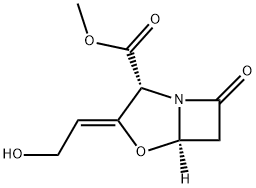
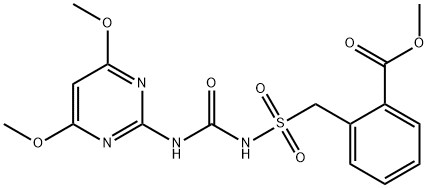
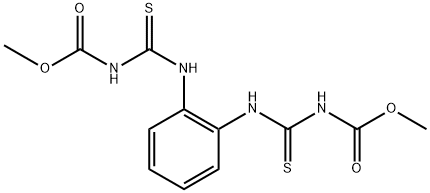

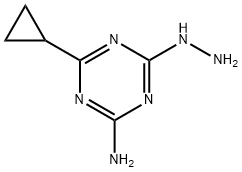
![2,4-DIAMINO-6-[2-(2-UNDECYL-1-IMIDAZOLYL)ETHYL]-1,3,5-TRIAZINE](https://img.chemicalbook.in/CAS/GIF/50729-75-4.gif)

You may like
-
 2,4-Diamino-6-methyl-1,3,5-triazine CAS 542-02-9View Details
2,4-Diamino-6-methyl-1,3,5-triazine CAS 542-02-9View Details
542-02-9 -
 6-Methyl-1,3,5-triazine-2,4-diamine CAS 542-02-9View Details
6-Methyl-1,3,5-triazine-2,4-diamine CAS 542-02-9View Details
542-02-9 -
 1975-50-4 98%View Details
1975-50-4 98%View Details
1975-50-4 -
 2-HYDROXY BENZYL ALCOHOL 98%View Details
2-HYDROXY BENZYL ALCOHOL 98%View Details
90-01-7 -
 2-Chloro-1,3-Bis(Dimethylamino)Trimethinium Hexafluorophosphate 221615-75-4 98%View Details
2-Chloro-1,3-Bis(Dimethylamino)Trimethinium Hexafluorophosphate 221615-75-4 98%View Details
221615-75-4 -
 61397-56-6 CIS BROMO BENZOATE 98%View Details
61397-56-6 CIS BROMO BENZOATE 98%View Details
61397-56-6 -
 14714-50-2 (2-Hydroxyphenyl)acetonitrile 98+View Details
14714-50-2 (2-Hydroxyphenyl)acetonitrile 98+View Details
14714-50-2 -
 118753-70-1 98+View Details
118753-70-1 98+View Details
118753-70-1